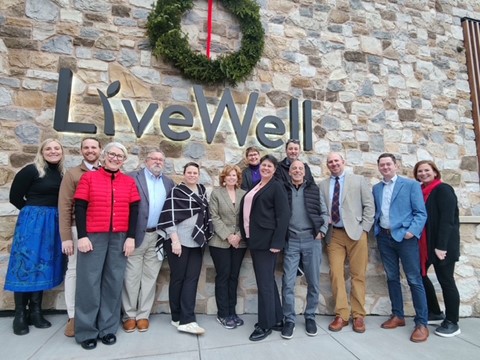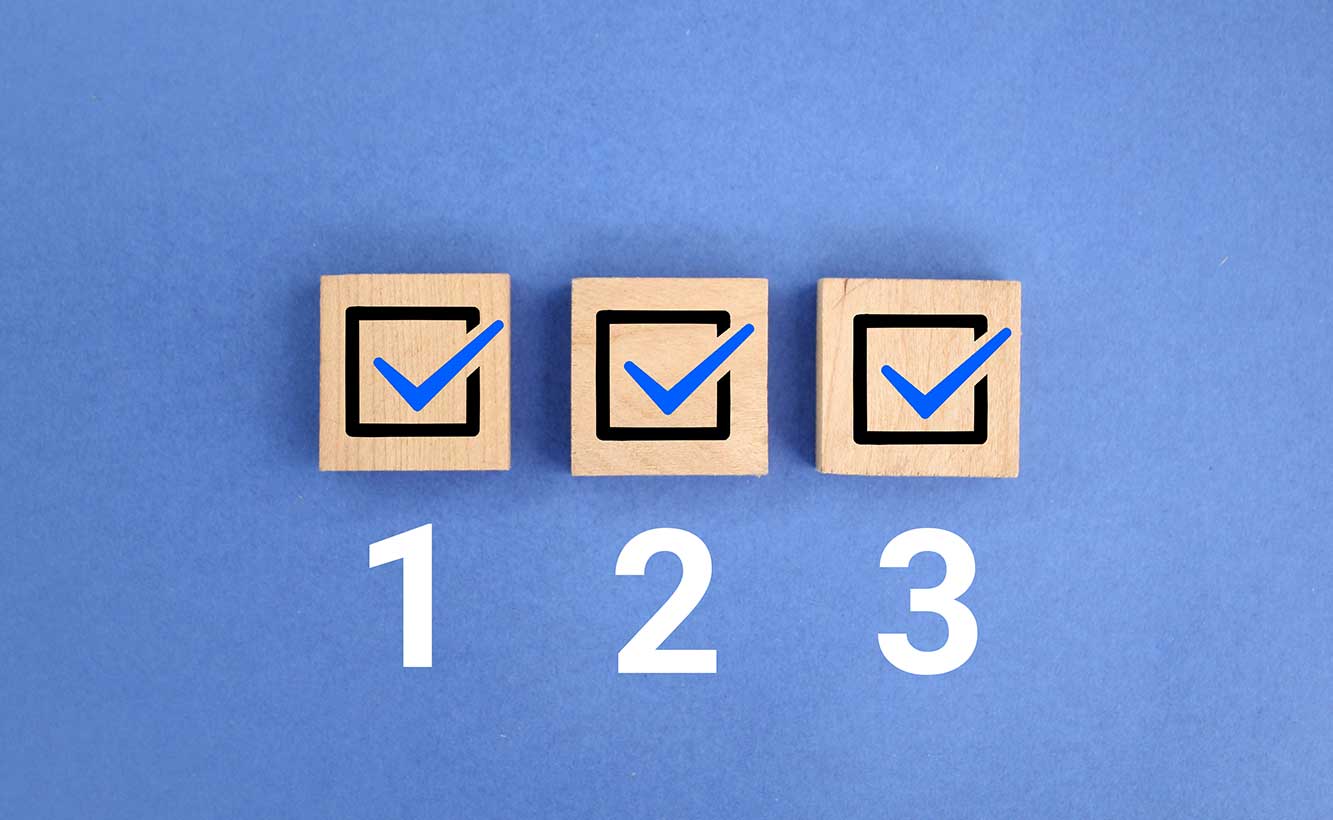
Author:
Kim Warchol, President and Founder of DCS at CPI
What makes dementia care training, great training? First, we think training must inspire and connect with “the why” and touch the heart to motivate someone to buy-in and want to learn to do something differently for better results. We also believe training should be based on evidence. Evidence based practice implies integration of clinical expertise, research evidence, and the values and preferences of the person in care. These three factors should combine giving confidence in the approaches we use.
Using Allen’s Evidence-Based Model to Build Dementia Care Training
In my first few years as an Occupational Therapist (OT), I admit I did it all wrong. I truly had little idea how to determine someone’s cognitive capacity and how to turn a dementia stage into a plan. And then in the early 90’s I discovered Claudia Allen’s Cognitive Disabilities Model (ACDM) and her Allen Cognitive Levels.
As a result, I learned a powerful new way to see those with dementia. She taught me how to categorize the functional ABILITIES and challenges observed in my clients into cognitive levels, and I learned to understand factors that influenced how someone engaged and functioned in any given moment.
This was an immense help as I could now organize observations of how someone performed in familiar and novel activities into cognitive levels, and I could make sense of the inconsistencies in participation that once confounded me. I also learned how to facilitate a person’s best ability to function at every cognitive level.
As a result of using Allen’s evidence-based approach, I became confident and competent in my functional cognitive assessment and intervention skills. I now had the tools to make a profound impact on the lives of those who were often passed over because they were living with chronic, progressive dementias like Alzheimer’s disease.
But I felt strongly that this powerful approach to identifying and using cognitive level (a.k.a. dementia stage) should never be limited to the work of therapists. This philosophy and approach needed to be shared by the entire team and embedded into the organization’s culture for optimum impact and sustainable results.
Seeing this as vital for effective, sustainable dementia care, I received Claudia Allen’s blessing (this was important to me), and went on to create a dementia training program for all who work in health care called Dementia Capable Care (DCC). It was built using the ACDM as one of the foundational components. Helping a team to be unified in how they discover, understand, and apply a person’s dementia stage creates many positive outcomes such as improved independence, health, safety, and quality of life and reduces the burden of care.
Through the years (despite some pushback, which I’ll describe later), we’ve steadfastly maintained the decision to use the ACDM and Allen Cognitive Levels as a core component of our dementia care training program. Why? It is simply that effective!
In our DCC training, we integrate the ACDM and Allen Cognitive Levels in two primary ways:
1. We describe the stages of dementia using the characteristic abilities and challenges categorized within the Allen Cognitive Levels.
2. Our actionable Dementia Capable Care Model is a derivative of the Can Do, Will Do, May Do components of the ACDM. These are essential underpinnings to discern a person’s true stage of dementia and their functional potential. These three factors are always present and impacting how we function.
- Will Do = This is akin to person centered care in that we must first learn and prioritize what the person values, their preferences and culture.
- Can Do = Their cognitive capacity and potential.
- May Do = The factors outside the person that will impact on their function such as the physical environment and the capability and availability of human support.
Previously I mentioned we have received some pushback with suggestions to disconnect from Allen’s model. Some have questioned why it is so vital to remain associated with an evidence-based model. They may think of “the Allen” as simply a leather lacing test, not understanding the model and its robust value. And/or, they may just want the quickest, easiest way to stage.
The truth is, functional dementia staging can be approached in two different ways, yielding two different degrees of results. I’ll describe how I’d use each below.
- Face Value Matching: Using a tool like the Functional Assessment Staging Tool (FAST) I would see certain abilities and challenges and then match what I observe to a dementia stage description.
- Go Deeper: Using the ACDM, I see abilities and challenges, but I also get to know the person (Will Do), and I understand the influence of the environment (e.g. an unfamiliar, busy hospital) on how they are functioning (May Do) in that moment. Therefore, when I observe certain abilities and challenges, I use my reasoning to know “why” I am observing what I see now. I consider everything that influences the degree of engagement and how someone functions, and I look for a pattern of behavior. This approach enables me to discover their stage and functional potential and to make sense of frequently seen fluctuations in ability or engagement level.
Staging approach #1 is little more than a face value matching experience. As such it is very fast - a quick look at what is, without understanding the why. Therefore, it is less capable of discovering true stage and facilitating a person’s best ability to function potential.
Staging approach #2 can also be rather expeditious. But, because it includes deeper understanding of the person and what influences their engagement level, it is likely more accurate, enabling someone to live to their true potential, in emotional well-being.
Never wanting to be out of touch with reality, we know “quick and easy” does matter, especially if not able to bill for that assessment time. Therefore, we developed the Cognitive Assessment Tool Guide (CATG). The CATG is a quick and easy tool to help the entire team communicate about the abilities observed in daily activities to identify indicators of a person’s Allen Cognitive Level/stage of dementia. The tool is introduced in our DCC training program and can be used by one professional or as a team as described.
Ideally, someone on the rehab team would go further with Allen testing and do a billable skilled cognitive assessment for a greater degree of validation and accuracy. Organizations who want a dementia specialized rehab team can have their therapy staff receive advanced training in using the Allen model and assessments.
I am an advocate for OT and Speech Language Pathologists (SLP) learning more about the ACDM and using the full Allen Battery of assessments. That degree of assessment rigor and knowledge is important to support skilled service when billing insurers such as Medicare and especially important when making discharge and living/support recommendations.
Can you use DCC Training even if You Don’t use the ACDM and Allen Cognitive Levels?
Yes. Even if an organization doesn’t want a dementia specialized rehab team with advanced Allen training, it is vital to have the care team trained in DCC and using the CATG. So, yes you can use DCC training even if you and your therapy team don’t “use the Allen model and assessments”. In this situation, the ACDM will simply live in the background of DCC training as the embedded evidence-based foundational component that it is, without organizations needing to decide to use the model and levels in a bigger way.
As examples, users of the DCC training approach:
- Do not need to use the assessments associated with the model such as the Allen Cognitive Level Screen (ACLS)/leather lacing in order to use DCC. As previously stated, we have developed the Cognitive Assessment Tool Guide (CATG) that helps teams hone their skilled observations into cognitive level/dementia stage categories. This can be enough to identify a stage of dementia that guides the basic care plan and approach.
- Do not need to use the Allen Cognitive Level nomenclature in favor of using stages of dementia. Our team has cross walked the descriptions of each Allen Cognitive Level to the stages of dementia, and this is how it is taught in our DCC training. Additionally, we have cross walked an Allen Cognitive Level to results from other commonly used cognitive assessment tools such as the FAST and Mini Mental Status Exam (MMSE). We created this crosswalk to help collaboration, but it is not to be used to assign a score on an assessment that hasn’t been administered.
In Summary
A multi-disciplinary team that learns the DCC training approach will be able to communicate clearly and collaborate easily because the CNA, activities, the nurse, social worker, and therapists will all describe stages of dementia using the same language and with a shared ABILITIES-focused philosophy and understandings. That is so powerful!
If the OT and SLP receive advanced training in using the ACDM and Allen assessments, these team members can bill for their skilled assessment and intervention services, and the organization will reap the many benefits of this higher level of expertise.
A person's cognitive level (aka stage of dementia) is the primary determinant of how independent they can be, how well they can manage their own needs, and how capable they are of making safe decisions. If we don't accurately identify and apply their dementia stage, we can't effectively care for someone with dementia.
But a team that understands stages of dementia from one common framework has a collaborative and powerful road map helping to create realistic goals and set expectations. The stage guides the care approach and care plan, fully illuminating the care and environmental support needs. This dementia capable team will work efficiently and effectively, creating the best outcomes for the person in care, care staff, and organization.
Want to Learn More about creating a dementia capable workforce using evidence-based training? We hope you and your team will get inspired and empowered by DCC training today.
Gain the knowledge and skills to optimize function, safety, and quality of life for those you serve and certifications to distinguish yourself or your organization as a leader
Originally published in June 2025
Share This Post:
Tell Me More!
Learn how our solutions can benefit you or
your organization.
Continue Learning:



